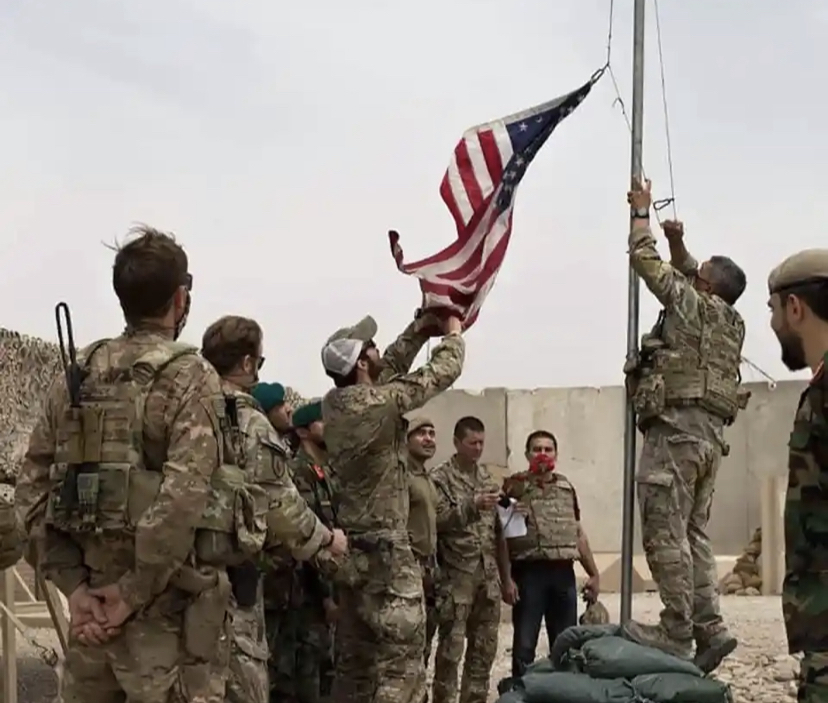AFGHANISTAN FAILURE MEANS MORE DANGEROUS WORLD

“U.S.-NATO failure in Afghanistan creates a void that results in a far more dangerous world,“
says geopolitical analyst Marco Vicenzino
This interview was conducted with Norway’s leading weekly newspaper Morgenbladet on August 17th, 2021, immediately after the fall of the Afghan capital Kabul.
The terrorist attack on the United States on September 11, 2001, for the first time triggered the so-called Musketeer Oath in NATO, which states that «an attack on one is an attack on all». It was an existential event for the defense alliance, which then struggled to find a foothold in a world without its main Soviet enemy. The US-led «war on terror» set a new course.
Therefore, when the United States invaded Afghanistan later that year, the alliance’s 30 countries followed suit. The goal was to remove the Taliban regime and drive away terrorists. Twenty years later, the Taliban are back in power in Kabul.
“The military engagement in Afghanistan is now ending in the most embarrassing way imaginable,” says Marco Vicenzino, a geopolitical analyst and founder of the Global Strategy Project.
“What has happened now damages the credibility of the United States and the West at a defining point in NATO’s history. The failure in Afghanistan creates a crisis of confidence in NATO and its leadership. This must lead to thorough self-examination.”
Almost ten years ago, Vicenzino visited Afghanistan as part of a NATO delegation. At the time, he believed progress in Afghanistan was crucial to NATO’s future. However, the situation has changed in the past decade.
“The United States announced its formal withdrawal in 2014, the same year that Russia annexed the Crimean Peninsula in Ukraine. The threat perceptions along the outer edges of Europe have created new impetus for NATO cooperation”, Vicenzino says.
“After the exit from Afghanistan, there have been questions about whether the United States is a partner to trust. Nevertheless, the reality is that there are no other nations that can guarantee Europe’s security. Therefore, the institution NATO will survive,” Vicenzino believes.
“But when the NATO alliance discredits itself in this way, it creates a void on the global political stage. It makes a far more dangerous world.”
CANNOT CUT AND PASTE DEMOCRACY
Vicenzino has for years warned against letting the war in Afghanistan be a forgotten conflict.
In NATO countries, dissatisfaction with lack of progress and wasted tax money has grown. Politicians have been pressured and wavered in their commitment to continue their efforts. It has hurt ordinary Afghans, who have first and foremost needed time to build their own state.
“The key word is expectations. The goal of ‘nation-building’ grew rapidly far from realities on the ground. A more modest approach would have been much better», he says.
«Trying to create a democracy in a country with a completely different culture and history, is putting the bar unrealistically high. You cannot just cut out the West’s ideas of democracy and try pasting them on to Afghanistan”.
GENERATIONAL TIME WARP
QUESTION: NATO Secretary General Jens Stoltenberg said on Tuesday (August 17th, 2021) that the Taliban’s surprising advance was due to a weaker Afghan government than expected and poor intelligence. After 20 years of war, how is such a surprise possible?
VICENZINO: “In American foreign policy, you will find many competent people who understood that this could happen. But unfortunately, there are many of at the top who neither listen nor accept reality. That such naivety could prevail in U.S. leadership is nothing new.”
QUESTION: Stoltenberg also said that the decision by NATO to withdraw with the United States was part of the slogan “in together, out together” – something that happened together. How do you think other NATO countries outside the US have experienced the way it was done?
VICENZINO: “The fact is that without U.S. support the mission in Afghanistan would be over as it provided the backbone for the Afghan National Army and guaranteed the security of the other NATO countries. In essence, the mission ended in April 2021 when President Biden announced that the United States was withdrawing unconditionally by September 11th. Without continued U.S. air support, it was a given that the Afghan army would lose the entire country.”
QUESTION: So Biden’s decision to leave the country so quick was wrong, in your mind?
VICENZINO: First, I would say that the decision to withdraw so quickly was Biden’s alone. Many warned against doing it this way, but the president’s thought pattern is trapped in a time warp. He suffers from the Vietnam Syndrome, which is typical of his generation. He struggles to adapt to today’s realities. This has led to many foreign policy misjudgments during Biden’s career. But this Afghan fiasco is his absolute biggest mistake.
QUESTION: What other mistakes are you thinking of then?
VICENZINO: Former Secretary of Defense Robert Gates was a Republican serving in a Democratic administration – under President Obama while Biden was vice president – and had the respect of both political camps. In his autobiography, Gates said that Joe Biden “has been wrong on nearly every major foreign policy and national security issue over the past four decades”. In my view, the list of errors is so long that it cannot fit into a single interview.
QUESTION: When you summarize 20 years of NATO engagement in Afghanistan, what is your assessment?
VICENZINO: What has happened this week (leading up to August 17th, 2021) speaks for itself. The way the mission ended, the images that surfaced in the last week. They do not just say a thousand words, they say millions.
